Democrats Could Break the Republican Trifecta in Arizona
The party needs to win two state House seats and three state Senate seats in next month’s election to flip the chambers. Here are the candidates running in hotly contested races.

Arizona has only voted for a Democratic president once since 1952 (Bill Clinton in 1996). But the state has been trending blue in recent years, and President Trump won it by just 3.5 percentage points 2016. Recent polls show former Vice President Joe Biden holds a steady lead against Trump, meaning he could win Arizona’s 11 electoral votes next month.
Maricopa County, the state’s most populous county with over half (4.5 million) of Arizona’s 7 million residents, has long been a Republican stronghold. But the county, which is home to Phoenix, has shifted away from the GOP since Trump’s emergence and is poised to play an outsize role in deciding the presidential race. Voters there elected Democrats for county recorder and for sheriff in 2016—the first time since 1988 that Democrats won two countywide races—and they helped swing a U.S. Senate seat to Democrats two years later.
The legislative races on the ballot are also extremely high stakes: Democrats could flip the state House of Representatives for the first time since 1966 and also have a shot at taking back control of the state Senate for the first time since 1990. Flipping one of the chambers would give Democrats the opportunity to advance their own agenda. Currently, because Republicans hold a majority in both houses, they can kill bills from Democrats without even allowing the bills a hearing.
Democrats picked up four seats in 2018, leading to a 31-29 split in the House. Republicans hold a 17-13 majority in the Senate, which makes it less likely that Democrats could take control of that chamber, though they may be able to at least split the power 15-15. To break the Republican trifecta, Democrats will also have to hold on to all the seats that Republicans are targeting.
All eyes are on the Senate and House races in Legislative Districts 6 and 20, and the Senate race in Legislative District 28, where Democratic strategists believe they have the best chance of grabbing Republican seats.
The Senate race in Legislative District 17, where Democrat Ajlan Kurdoglu, a Turkish immigrant and furniture store owner, is challenging Republican incumbent J.D. Mesnard, could be another close one. Mesnard won the seat by just one percentage point in 2018, and Democratic voter registration in the district has outpaced Republican registration since then.
1. Coral Evans
Running for: House of Representatives, District 6
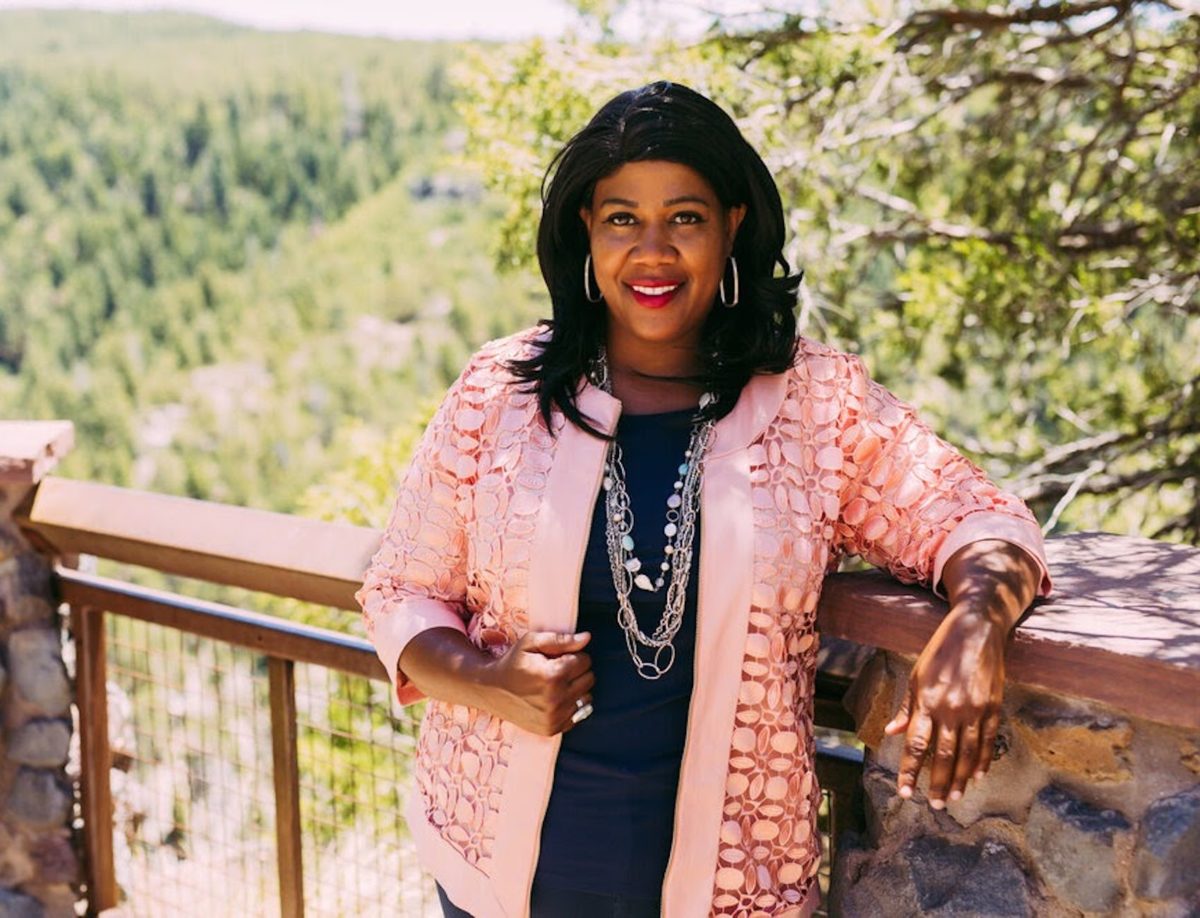
Coral Evans, the mayor of Flagstaff, took a stand against Governor Doug Ducey’s handling of the COVID-19 pandemic this year by becoming the first city in the state to close bars, restaurants, gyms, and other businesses even when Ducey refused to do so. Evans is the first Black mayor of Flagstaff and a third-generation Arizonan—her grandfather built the house she lives in in 1942.
Evans won seats on the Flagstaff City Council in 2008 and in 2012, and was elected mayor in 2016 and 2018. Now, she’s running as the Democratic candidate for one of the two House seats in District 6, which includes cities like Flagstaff, Sedona, and Payson.
She is running on three key issues: improving access to quality education and childcare in Arizona, supporting small businesses, and ensuring cities and towns have local control to make their own decisions.
“I’ve also seen education funding in Arizona fall to 49th place,” Evans said on her campaign website. “I’ve seen small business owners fight giant obstacles to bring their dreams to fruition. I’ve seen the Arizona Legislature pass legislation that prevents communities from solving their own problems.”
“Whenever a corporation feels threatened by rural initiatives they run to their friends in Phoenix and politicians promptly pass a law taking away local power,” Evans told the Arizona Daily Sun, citing several occasions when the state had intervened in cities attempts to pass reforms.
Evans said she wants to increase funding for education by looking for savings in places where she believes the state shouldn’t be spending money (like private prisons) and increasing income taxes on large corporations in the state.
Republicans won the 2018 House race in the district by just 577 votes. Evans is competing against Independent Art Babbott, chairperson of the Coconino County Board of Supervisors, former Republican Representative Brenda Barton, and incumbent Representative Walt Blackman, a Republican. Blackman had long been championed for pushing criminal justice reform in Arizona but fell out of favor with advocates after he called Black Lives Matter a “terrorist organization” in June and voted yes on a mandatory minimum bill in the most recent legislative session.
Evans has been endorsed by Living United for Change in Arizona (LUCHA), the Sierra Club, AFL-CIO, Emily’s List, Save Our Schools Arizona, among others.
“Coral blew our members away,” said Randy Perez, LUCHA’s democracy director. “She’s been out fighting for economic justice. She pushed for a $15 minimum wage in Flagstaff. … She has the chance to win.”
2. Felicia French
Running for: Senate, District 6
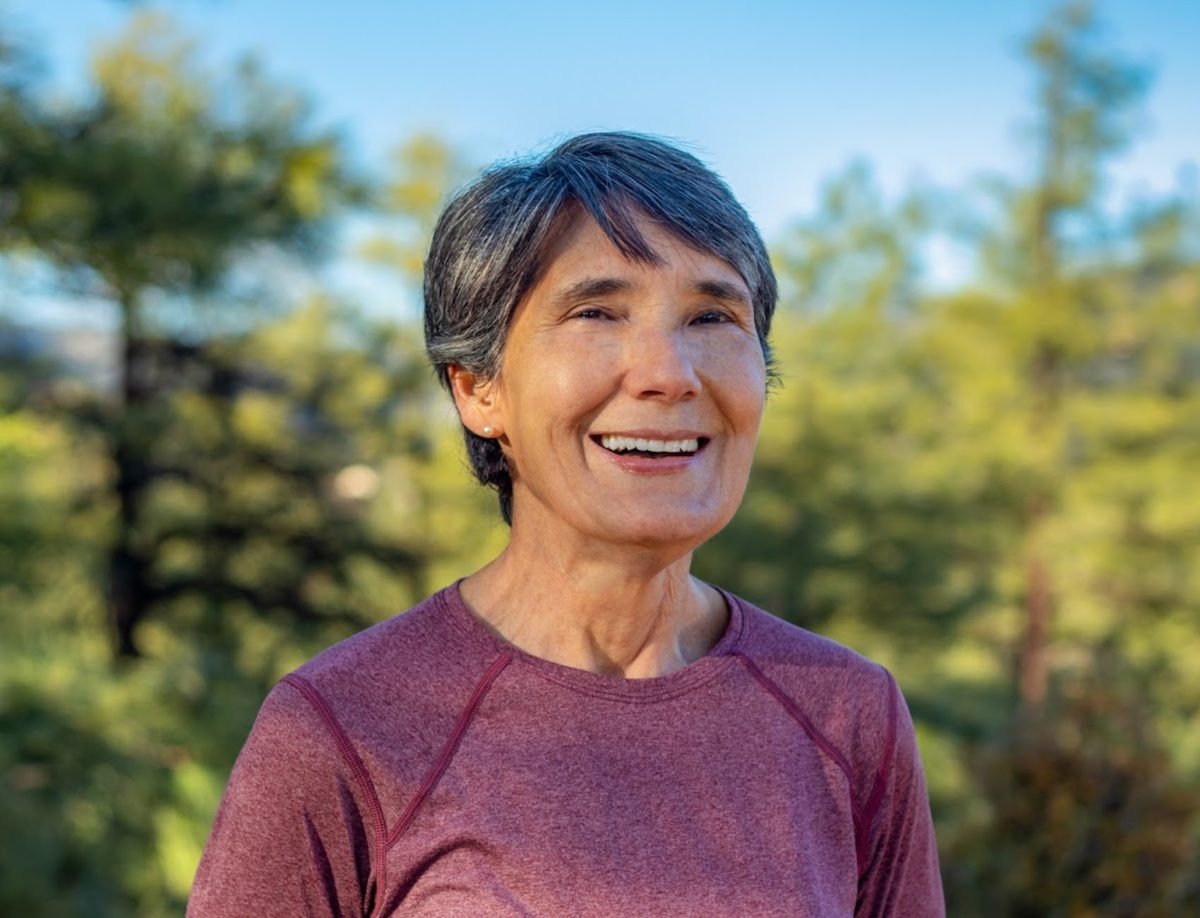
Felicia French is a retired Army colonel, a nurse, an educator, a sustainability scientist, a MedEvac helicopter pilot, a single mother, and the co-founder of a small business offering sustainability consulting. Like Evans, French is a third-generation Arizonan. She lives in Pine and is running alongside Evans as the Democratic candidate for the Senate seat in District 6.
French spent 32 years working for the Army and Arizona National Guard after joining the Guard as a medic at 17. After retiring in 2010, she began teaching sustainability at Arizona State University and Mesa Community College and began working as a hospice nurse. She also volunteers with search and rescue teams, and recently spent a month volunteering her skills as a nurse to contribute to relief efforts on the Navajo Nation, which was hit badly by the COVID-19 pandemic. She also walked the Arizona Trail, an 800-mile hike that stretches from Mexico to Utah, last year.
In 2018, French missed out on a House in District 6 seat by a razor thin margin, while the Senate race in the district that same year was decided by a 1.8 margin.
French wants to fully fund public education in Arizona, expand access to affordable, quality healthcare, and make the state government more accountable to rural communities. She supports lowering health insurance premiums and deductibles and wants to put caps on prescription drug costs.
“No matter where a child lives, they should be able to attend a great public school.” French told Blog for Arizona. “I want to expand rural broadband to bridge the digital divide. Internet access must be a basic utility, like electricity. Otherwise, we leave our rural communities further and further behind in education, health care, and jobs. I also support universal pre-K and believe, consistent with our state Constitution, that university tuition should be as free as possible.”
The Republican incumbent in the seat is Sylvia Allen, but Republicans threw their support behind Wendy Rogers in this year’s primary instead. In the past, Rogers has accused an opponent of working with a company that was in child sex trafficking. More recently, she has said she is under attack by the “far, far, far left. … That’s what happens when you stand and fight for what’s right, especially this year. It happened to Kyle Rittenhouse.”
French has been endorsed by Save our Schools Arizona, the Center for Biological Diversity, CHISPA AZ, Fight for Reform, Equality Arizona, AZ NOW, LUCHA, and several unions and professional associations.
“[French] sounded committed to keeping her ear open and co-governing with groups like ours,” Dionne Mills, who sat on LUCHA’s endorsement committee, told The Appeal.
3. Christine Marsh
Running for: Senate, District 28
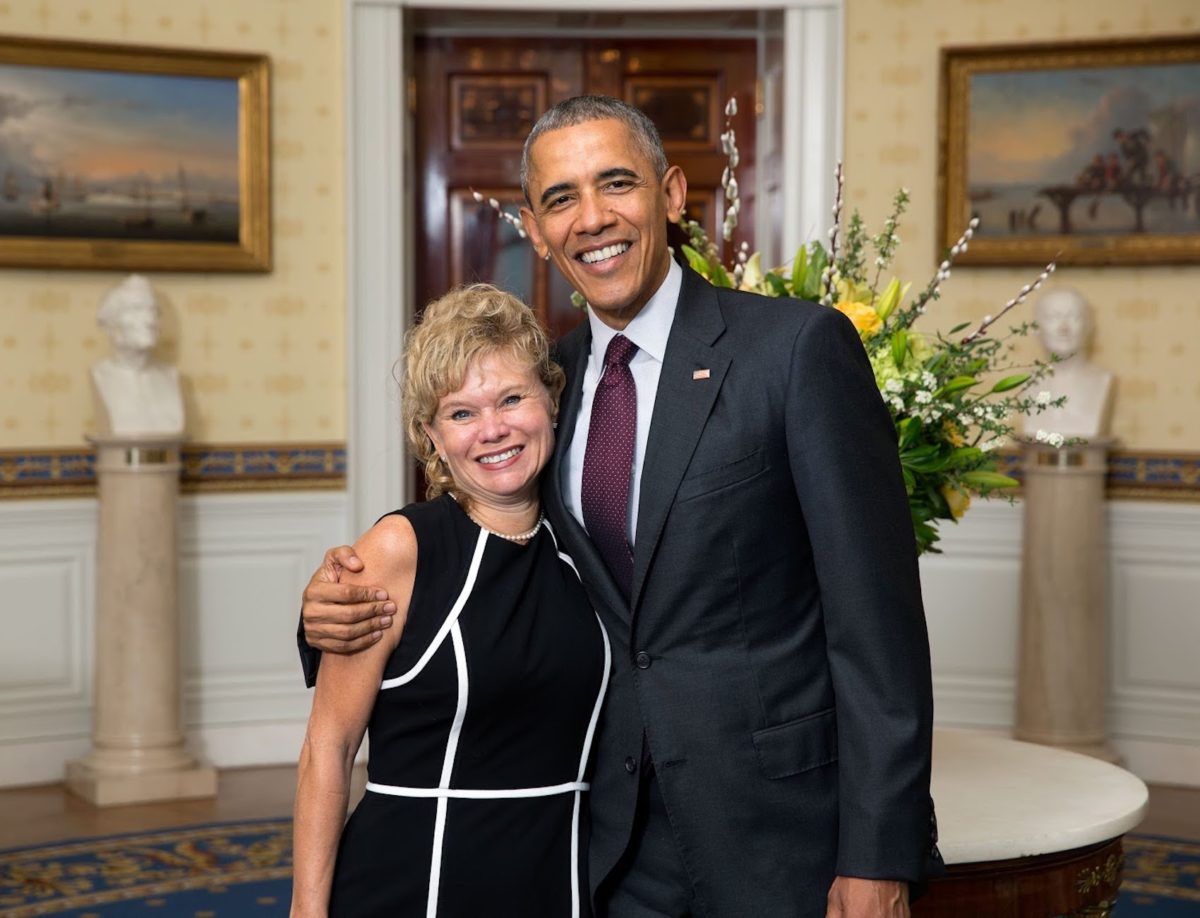
Christine Marsh is a high school English teacher who spent 28 years teaching students and was named Arizona Teacher of the Year in 2016. She rose to prominence during the #RedforEd movement, when tens of thousands of teachers in several states walked out of their classrooms for a week and wore red to march to their state capitols and demand better pay, more school funding, and smaller class sizes. Marsh is one of a handful of Arizona teachers who decided to run for state office to change the legislature itself to secure more funding for schools after participating in the walkout.
She is running for Senate in District 28, which includes North Central Phoenix, Biltmore, Arcadia, and Paradise Valley. She ran for the same seat in 2018 and lost to Senator Kate Brophy McGee, a Republican, by just 267 votes.
Marsh’s key issue is improving the state’s failing public education system. She wrote that she was inspired to run when one of her students asked her if children in Arizona were worth less than children in other states. Marsh was taken aback by the question, she recalled, and the student explained it seemed like Arizona valued students less than other states, since education funding is so far below the national average.
“I’ve watched as politicians say they are working to ‘get things done,’ while undermining our voting rights, underfunding our public schools, passing a universal voucher bill, and reintroducing junk insurance plans as needed choice in healthcare in Arizona,” Marsh said on her website. “I’m done watching, and I’m running for the State Senate.”
Marsh sees the lack of education funding in the state as an issue that affects students of color most and says that it’s imperative not to base improvements on education funding on results, as they disproportionately assist wealthier, whiter schools, and said the state needs to invest in Title I schools that serve low-income students.
She supports Proposition 208, the Invest in Ed initiative, which would put a 3.5 percent tax surcharge on people with annual incomes that exceed $250,000 for a single filing or $500,000 for a joint filing and use the revenue to fund education.
She also wants to expand access to healthcare and is against corporate welfare and tax breaks for big businesses, stating that corporate handouts “lead to poorly maintained infrastructure and inadequate funding for our public schools.” She also wants to expand Arizona’s renewable energy industry, since the sun-soaked state is uniquely situated to take advantage of the solar industry. Pursuing renewable energy would save taxpayers money and create jobs, Marsh said.
Marsh has been endorsed by the Arizona Education Association, LUCHA, Planned Parenthood, the Human Rights Campaign, NARAL, End Citizens United, Warren Democrats, the Sierra Club, and several workers unions.
“She had a background in education and she did answer questions regarding her plans for equity in education,” Mills said, adding that Marsh was concerned not only about increasing funding for public education, but about equity and the use of school resource officers.
4. Judy Schwiebert
Running for: House of Representatives, District 20
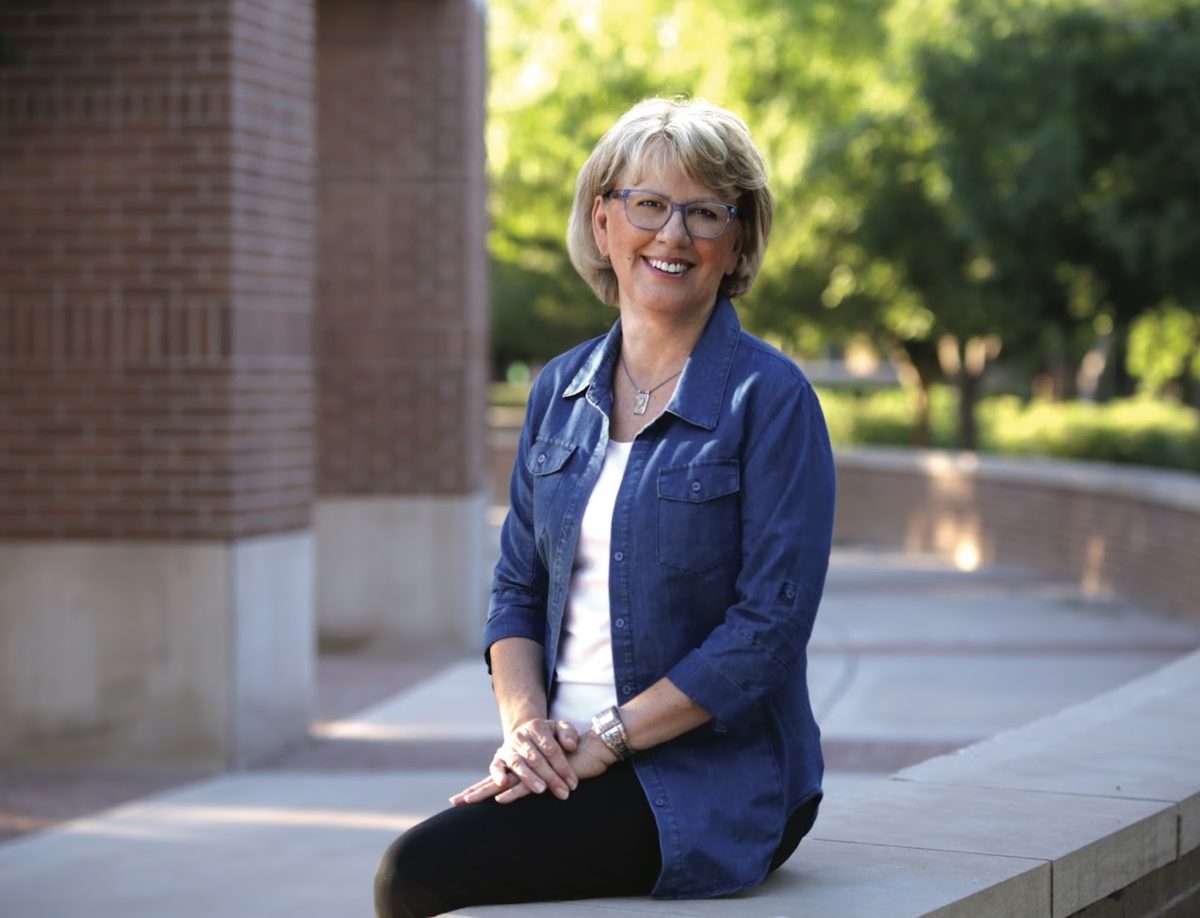
Judy Schwiebert is another longtime teacher who has decided to run for office as the Democratic challenger in a closely watched House race this year. Schwiebert has spent 27 years teaching in the Glendale Union and Peoria unified school districts. She co-founded the community theater Theater Works, has worked as a yoga teacher, and co-founded Desert Progressives Indivisible, an issues-based group of activists concerned about threats to healthcare, voting rights, the environment, and public schools.
She is running against Republicans Anthony Kern and Shawnna Bolick for one of the two House seats in District 20, which includes parts of Phoenix, Moon Valley, and Glendale. The district has been led by Republicans since its formation in 2012, though Democrats came close to grabbing a seat in 2018.
Like Marsh, Schwiebert sees education as a key issue and views the stark lack of school funding in the state as a barrier to economic equality and racial justice. She says the state needs to stop prioritizing tax credits for special interests and corporations and stop shifting the tax burden to the middle class. Schwiebert supports expanding access to quality, affordable healthcare, regardless of pre-existing conditions, and says she will “allow consumers to buy into AHCCCS, the state’s Medicaid agency, increasing the program’s bargaining power to reduce premiums for everyone.”
“We currently give away more in tax credits and exemptions for corporations and special interests than our entire state budget,” Schwiebert told the Glendale Star. “This uncertain time has made it clear that we need to focus on supporting our local businesses and families, rather than giving tax breaks to large out-of-state corporations when money is going out of state.”
Schwiebert has been endorsed by the AEA, the American Federation of Teachers, the Sierra Club, Arizona Youth Climate Coalition, Planned Parenthood, NOW, LUCHA, End Citizens United, and several professional unions and associations.
“She’s a LUCHA member,” Perez, the organization’s democracy director, told The Appeal. “She is great at listening to our members’ concerns about the ways students of color are being treated, the school-to-prison pipeline. … She knows who she is and wants to reform the education system.”
5. Doug Ervin
Running for: Senate, District 20
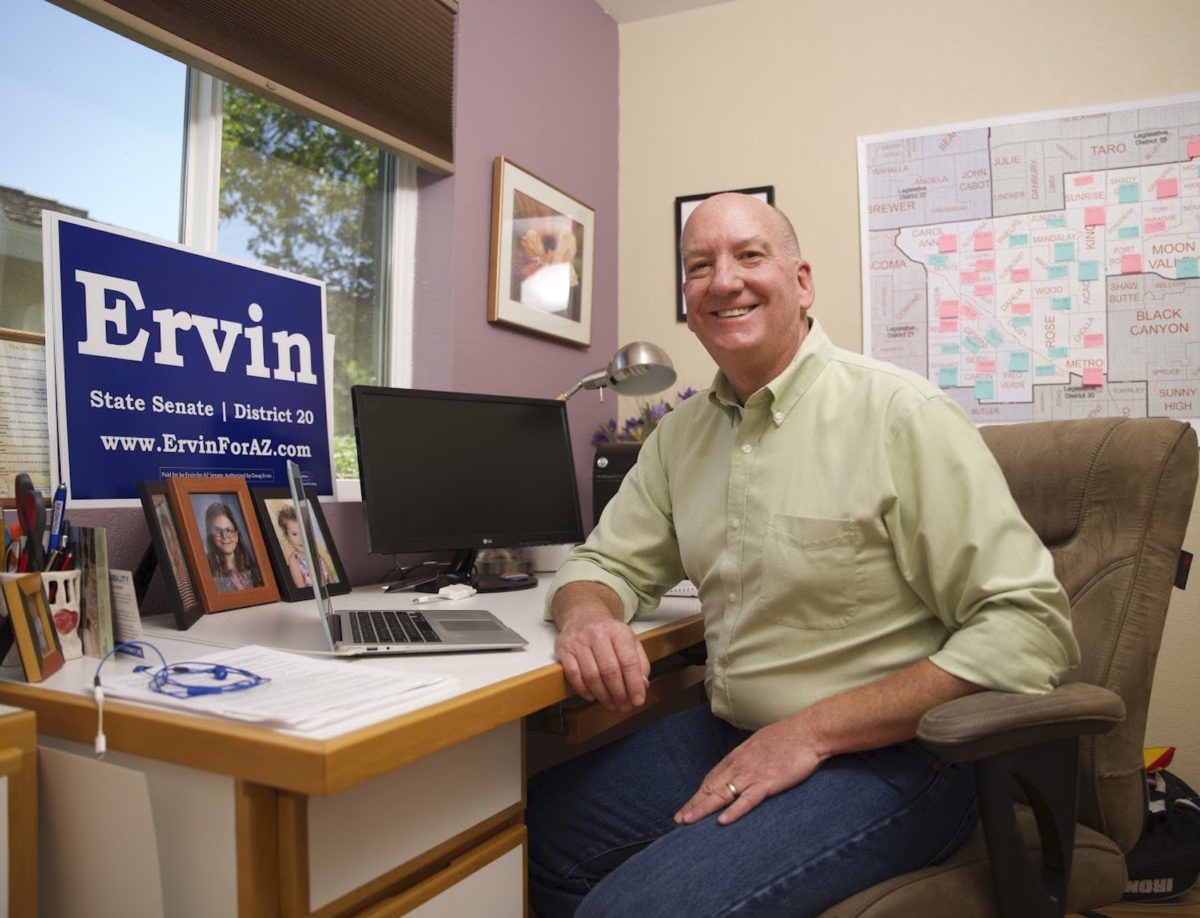
Doug Ervin, an accountant and a tutor for second-graders, is running with Schwiebert in District 20. Ervin is running against Republican incumbent Paul Boyer for a second time, having lost to Boyer in 2018 by about a 4 percent margin.
Ervin grew up in Arizona and got his first job when he was 13 because, he said on his website, his parents insisted education was a priority, but they were unable to afford his college tuition. He earned his accounting degree in night school, passed the Certified Public Accountant exam, and has worked as a corporate tax auditor, small-business accountant, fiscal consultant, and software architect.
Ervin has pledged to “restore fiscal responsibility” to the state and is campaigning on improving education in Arizona by properly funding schools, expanding access to quality, affordable healthcare while also protecting people with pre-existing conditions, and growing the economy by promoting renewable energy and supporting working families.
He criticized the state for the instability of its Children’s Health Insurance Program—during the last recession, Arizona froze enrollment, and tens of thousands of children lost coverage. “We need to stop playing political games with lives,” Ervin told Blog for Arizona. “Instead of instituting freezes to children’s health coverage, we need to be expanding the program as this will help our students learn better, strengthen our economy and it is the morally correct thing to do.”
Ervin has been endorsed by LUCHA, End Citizens United, Let America Vote, AFL-CIO, AEA, the Sierra Club, Planned Parenthood, and other professional unions and associations.
“He really tackles the numbers behind the policies we care about,” Perez said of Ervin. “He supports paid family leave, child care, and democracy issues like access to the ballot” and “he was willing to talk about what that would look like [budget-wise] and how that would support us.”
